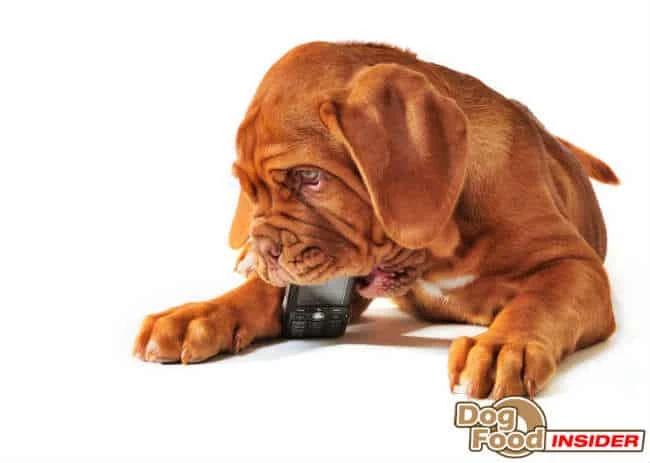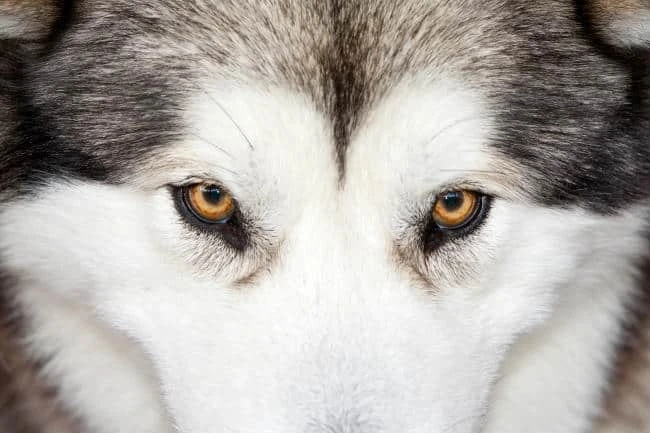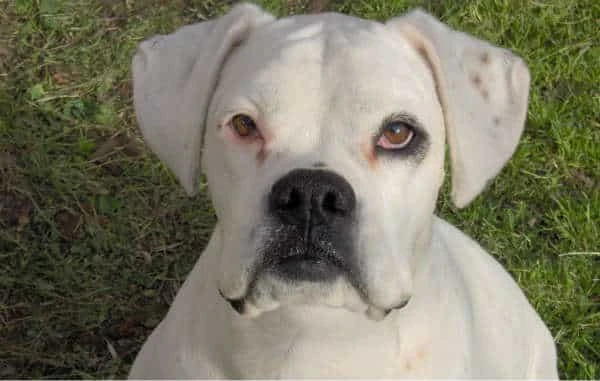The Dog Owners Guide To Canine Bronchitis

Canine bronchitis is different to Asthma in dogs and can be acute or chronic but is classified as ‘chronic’ when the cough has lasted for more than two months. This condition can affect dogs of any age and will occur in both males and females.
Acute bronchitis is often caused by a viral infection or as a result of another health problem i.e. Kennel Cough, Parainfluenza or Distemper. The symptoms of this condition will normally include rapid and difficulty in breathing and loss of appetite. Your dog may also have a raised temperature. Other causes of this condition can include smoke or airborne allergens and even lung parasites. If the ‘Acute’ version lasts for an extended period of time (up to two months or longer) or is not treated then it is classified as ‘Chronic’.
Chronic bronchitis in dogs
Chronic bronchitis in dogs occurs when the mucus membrane lining the bronchioles and bronchi of the lungs become inflamed. The cause of this condition is often unknown although if the acute version has been left untreated or the dog has been suffering from kennel cough these can be contributing factors. It is also possible for airborne irritants, dust and smoke to cause bronchial inflammation.
Symptoms of bronchitis in dogs
The symptoms of this condition will normally include a very harsh dry cough. Coughing can also be exacerbated by excitement and exercise. Other symptoms can include retching, gagging and as the coughing gets worst a foamy saliva may be coughed up (this is not to be mistaken for vomiting). Unfortunately the condition is self-perpetuating because the more that your dog coughs the more this will irritate the bronchi and bronchioles in the lungs.
Canine bronchitis will normally develop over time and may initially only be present when your pooch exerts himself through exercise. Although the symptoms may not progress further in really bad cases the cough can be incessant and non-stop.
There are a variety of methods that a vet may use to diagnose canine bronchitis including…
1. Sputum examination – this will involve the vet taking tests of the sputum (this is the mucus that is found in a dog’s lungs). There are a variety of ways for a vet to get this including a Transtracheal wash which is where a needle is inserted into the trachea to get a sample of the sputum. Tests can be done on this to test for cancer cells, allergens, parasites and infections.
A transtracheal wash can also be undertaken through a sterile tube being passed down the trachea of the sedated dog – a saline solution will then be flushed and processed for bacteria culture and cytology. This procedure is normally fairly accurate and can lead to a confirmed diagnosis.
2. The vet will undertake a complete physical examination and will also look at the dog’s medical history but at the time speak to the owner about the amount the dog is coughing (a coughing log is really useful to help the vet come to an accurate diagnosis).
3. Arterial blood may be examined to test for how much oxygen is in the blood.
4. To get a really good idea regarding the health of the bronchi and trachea the vet may perform a tracheobronchial examination.
5. Another method sometimes used by vets to diagnose canine bronchitis may include a Bronchoscopy this is where a small fiber optic tube is passed into the airway. This is particularly effective with dogs that have also been coughing up blood and mucus. This procedure will enable the vet to see inside the respiratory tract – the vet will then take biopsies and washings for examination and culture.
Treatment for canine bronchitis
The treatment for canine bronchitis will be a combination of different treatments including antibiotics, bronchodilators and anti-inflammatory drugs. The vet may also prescribe medication to help break up the mucus. This condition is incurable but through the previous mentioned treatments the coughing can be reduced and the quality of life of the affected dog greatly improved.
Owners who have a dog suffering from this condition should try and keep their dog warm and dry (taking him or her for a walk in cold wet weather is not advised for obvious reasons). Food should be easy to digest and in really bad cases if your dog is taken for a walk special dog clothing should be used (including a waterproof flannel jacket).
Dogs suffering from obesity are also more susceptible to coughing fits and by reducing your dog’s weight even by a small amount will greatly improve the coughing but also your dog’s quality of life.
When it comes to treating canine bronchitis you should always take your dog to the vet as only minor coughs (that are not ongoing should be treated at home still under the guidance of a vet).
What does that cough mean?
When a dog (or human) coughs it is as a result of an irritation to the airway. There are a variety of different causes including (bronchitis of course), inhalants (grass seeds, dust etc), congestive heart failure, respiratory tract tumors and a collapsing trachea. It is also possible that a collar placed too tight around the dog’s neck can cause condition.
There are also different types of coughs that a dog owner should be aware of…
1. When a dog has a very deep and hacking cough that seems to be made worst through excitement or exercise is often as a result of kennel cough.
2. If your dog has a wet or moist cough that ‘bubbles’ then this would indicate that there is phlegm or fluid on the lungs – this can indicate that the dog is suffering from Pneumonia.
3. If your dog licks his or her lips and swallows after a cough in a high pitch (which sounds weak) this can be an indication of a sore throat or tonsillitis.
4. Prolonged spasmodic coughing that happens at night when your dog is lying on his or her sternum can indicate heart disease.
5. If you own a toy breed and the coughing as a honking sound then this can be a sign of a collapsing trachea.
When a dog breaths in a particular irritant the natural reflex is for the dog to cough (so that the irritant is forced out from the air passages). Of course if your dog is persistently coughing then this could indicate a serious problem such as disease, infection or symptoms of an allergy. Below is a brief guide on how to translate your dog’s cough.
1. If your dog is repeatedly coughing after being taken for a walk or after exercise this could indicate a serious problem such as heart disease. Of course if your dog is wheezing then this may indicate that there is a problem with the wind pipe or bronchial tubes (symptomatic of Tumors, Congestive heart failure and Chronic lung disease).
2. If your dog appears to have a moist, wet or gurgling cough then this may indicate that phlegm is present (a possible sign of Pneumonia, which is a very serious health problem).
3. If the cough appears wheezy and makes a low sound each time your dog coughs then this could be a sign of Bronchitis.
4. A dry, forceful and compulsive cough may indicate that your dog is suffering from Kennel cough.
5. If your dog is experiencing laboured breathing this can be due to a number of reasons. If the voice box is inflamed then this can lead to a squeaky sound when the dog breaths. The breathing may also appear forced. Although this is a sign of laryngitis it can also be a sign of a tumor or foreign object in the area around the larynx.
Before ruling out canine Bronchitis you should always get your dog checked out by a vet if you have any concerns about your dog’s cough. Of course it will normally be nothing to become too concerned about however in some cases the coughing may be a symptom of something more serious than Bronchitis. Heartworm and lungworm can cause similar symptoms and both can be fatal so will need to be treated as an emergency. Tumors and tracheal collapse can also lead to coughing.
If your dog experiences any breathing problems including a condition known as Dyspnea (this is where the breathing becomes very laboured and more difficult) then this should also be treated as a medical emergency.
A holistic approach to treating your dog’s cough
1. There are some excellent complementary remedies that can be beneficial in alleviating your dog’s cough. Liquorice is a very good remedy as it acts as an expectorant. If your dog is experiencing a dry cough then Thyme or Garlic may be beneficial.
2. There are also some benficial homeopathic remedies for treating coughs in dogs. If your dog has a cough that sounds rattly then Antimonium tartaricum may be prescribed by a homeopathic vet (especially if there is loose mucus that accompanies the cough). If the affected dog has a cough that is associated with Asthmathen Ipecacuana may be prescribed. However, it is important to mention that you should never give your dog any supplements without first consulting your vet.
Prevention is better than cure!
As a dog owner it is always the best option if you try and prevent your dog from developing this debilitating condition rather than having to treat the symptoms after they have developed. Below we have listed a few top tips on how to reduce the chances of your dog developing bronchitis…
1. Try and keep your property dust free. Allergens floating around in the atmosphere will only make the condition worst (so this should keep you motivated when you are feeling lazy and don’t feel like doing the vacuuming)!
2. Avoid smoking in the property! This should go without saying. If you want a smoke just go outside, smoking can contribute to the condition.
3. Try and feed your dog a healthy diet. Obesity can be a contributing factor in the condition developing. Of course keeping your dog healthy can also keep the immune system strong.
Did you know?
Acute bronchitis will normally start suddenly but the chronic version will develop over time. Chronic bronchitis will need long-term medical intervention and the actual cause is not yet really understood. However, Acute bronchitis is normally caused by a viral or bacterial trigger. However, as previously mentioned household dust, cleaning products, smoke and other allergens can also be a cause.
It is important to remember that a condition known as tracheobronchitis can develop, this is when the wind pipe also becomes affected. Of course if your dog has developed this condition or Acute or Chronic Bronchitis it is important when you walk your dog that you remove the normal collar and leash and go for a harness.
Dog Health Problems Online > Canine Asthma > Canine Bronchitis





